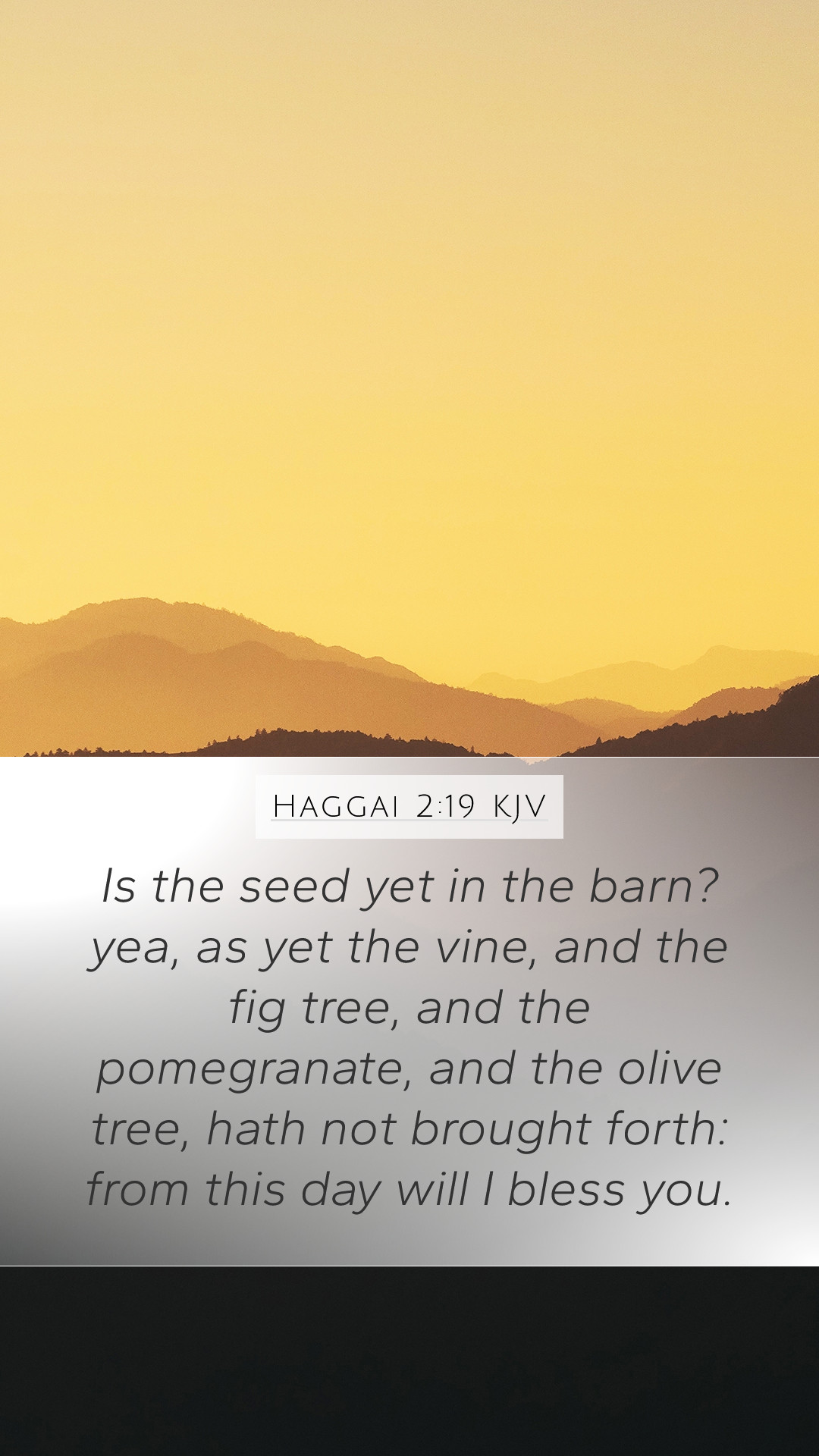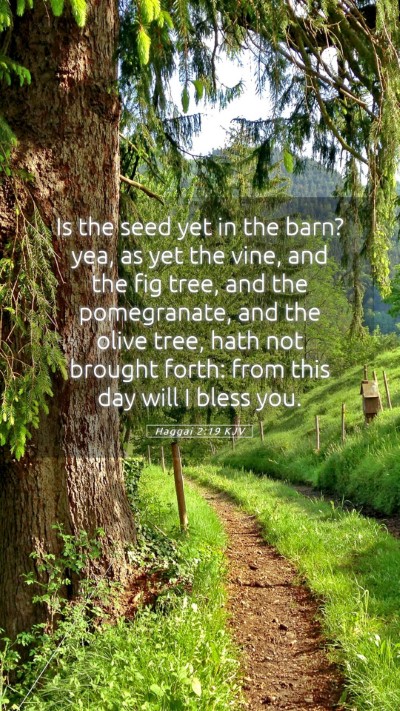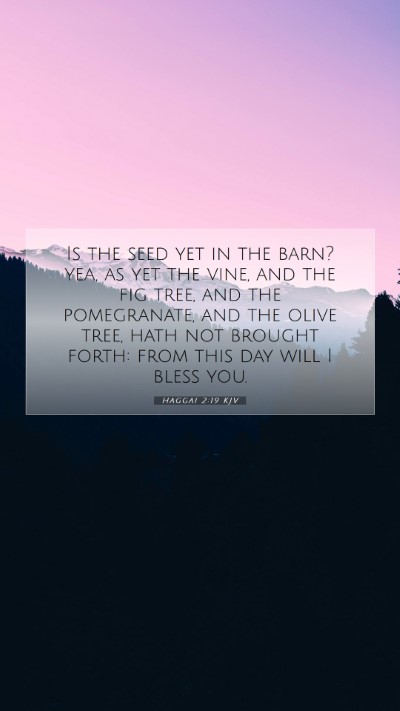Old Testament
Genesis Exodus Leviticus Numbers Deuteronomy Joshua Judges Ruth 1 Samuel 2 Samuel 1 Kings 2 Kings 1 Chronicles 2 Chronicles Ezra Nehemiah Esther Job Psalms Proverbs Ecclesiastes Song of Solomon Isaiah Jeremiah Lamentations Ezekiel Daniel Hosea Joel Amos Obadiah Jonah Micah Nahum Habakkuk Zephaniah Haggai Zechariah MalachiHaggai 2:19 Meaning
What is the meaning of Haggai 2:19?
Is the seed yet in the barn? yea, as yet the vine, and the fig tree, and the pomegranate, and the olive tree, hath not brought forth: from this day will I bless you.
Haggai 2:19 Bible Verse Meaning
Haggai 2:19 - Understanding Scripture
Verse: Haggai 2:19 - "Is the seed yet in the barn? Yea, as yet the vine, and the fig tree, and the pomegranate, and the olive tree, hath not brought forth: from this day will I bless you."
Overview and Context
The book of Haggai was written during a time of rebuilding for the Israelites after their return from Babylonian exile. This verse signifies a pivot in the people’s circumstances as they recommit to God's house. By examining its meaning, we gain insights into God's promise of restoration and blessing.
Key Themes and Interpretations
-
Promise of Blessing:
Haggai 2:19 emphasizes God's promise that despite their current difficulties, including agricultural failures, He would bless them. Matthew Henry highlights how this reflects God's faithfulness to His people, assuring them that their labor will bear fruit.
-
Rebuilding and Restoration:
This scripture serves as a reminder that restoration is a process. Albert Barnes discusses how the physical act of rebuilding the temple foreshadows spiritual revitalization among the people. The mention of specific crops symbolizes tangible blessings that will follow their obedience.
-
Faith in Action:
Adam Clarke notes that the question about the seed being in the barn indicates the people's current state—reflecting their need for faith despite the visible signs of barrenness. This reflects a principle applicable to today’s challenges, that continued faith and action can lead to divine blessings.
Exegesis and Analysis
This passage can be analyzed in several dimensions:
-
Historical Context:
Understanding the post-exilic context is crucial. The Israelite community had faced hardship and were struggling to complete the temple, symbolizing their relationship with God. Haggai encourages them by pointing out God's redemptive plans.
-
Symbolism of Crops:
The crops mentioned (the vine, fig tree, pomegranate, olive tree) each represent the abundance and blessings that God promises to restore. These fruits are emblematic of prosperity and unity among the tribes.
-
Call to Move Forward:
By stating that blessings will come "from this day," the verse suggests an urgent call for the Israelites to persevere and continue rebuilding God’s house, trusting in His providence and timing.
Application for Today
This verse can be applied to modern believers in several ways:
-
Encouragement in Challenges:
Like the Israelites, many today face periods of stagnation in their spiritual or personal lives. Haggai 2:19 serves as a reminder that God is at work even when we cannot see the fruits of our labor immediately.
-
Faithful Stewardship:
The encouragement to plant seeds—both literally and figuratively—reminds believers to actively participate in their faith and community. God's blessings follow acts of faith and obedience.
-
Spiritual Rebuilding:
This verse challenges individuals and congregations to evaluate their spiritual condition and take action toward renewal and rebuilding—whether through worship, community service, or personal growth.
Cross References
This verse is related to several other biblical passages that echo similar themes of hope and divine blessing:
- Zechariah 8:12 - "For the seed shall be prosperous; the vine shall give her fruit, and the ground shall give her increase, and the heavens shall give their dew."
- Malachi 3:10 - "Bring ye all the tithes into the storehouse, that there may be meat in mine house, and prove me now herewith, saith the Lord of hosts, if I will not open you the windows of heaven, and pour you out a blessing, that there shall not be room enough to receive it."
- Philippians 4:19 - "But my God shall supply all your need according to his riches in glory by Christ Jesus."
Conclusion
Haggai 2:19 provides significant insights regarding divine promise, faith in adversity, and the hope that comes from obedient action. By understanding this scripture, believers can find renewed strength and encouragement in their own journeys of faith. Engaging in Bible study discussions regarding this verse can lead to deeper insights and practical applications in everyday life.
Using this understanding, Bible study groups can delve into the implications of God's faithfulness and encourage one another in trusting God's promises.


